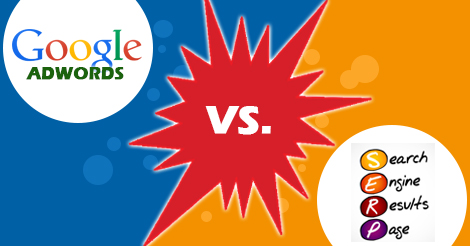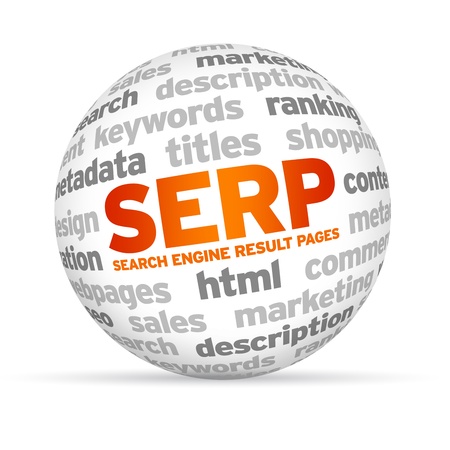How and how does Google Adwords not affect organic search results? | Weboptim
It is generally assumed that PPC can have an impact on organic results. But what exactly is this effect and how does it work?
The rule is: paid ads have no direct impact on organic results.
Many of you are probably familiar with the following conspiracy theories: "if you spend a lot in Google Adwords, your organic results will improve" or "we spend a lot, but our competitor spends even more, that's why they are higher in the organic ranking".
None of this is true. There is a real wall between paid results and organic results.

However: there are a lot of indirect things that Google does not fully control, which can cause the relationship between paid and organic results.
A. Search engines who see the ad are more likely to click on organic results
Searchers who see an ad are more likely to click on an organic result, or to click on a high-ranking organic result for the same ad.
For example, if we are interested in Seattle Whale Tours and whale watching we are looking for. We see the company's ad and then we see the same company at the top of the organic search results. Let's say the normal click-through rate when we see only the ad is 1 and the same rate when we see only the organic results is also 1. Imagine the equation: 1 plus 1 actually becomes 2.2. It will be a bit higher because if we see both, we may be wrong, therefore we are generally more likely to click than if they were independent of each other. This is why many people use brand ads. But this can be an expensive method and not always worth it.
B. Searchers who previously discovered the website through an ad are more likely to click and convert
Searchers who have previously seen paid ads from a particular brand are more likely to click on organic content in the future. Remember, higher click-through rates and higher engagement can lead to better rankings.
So if we see that many people searched, clicked on the paid ad and later saw the same brand in organic results, they are more likely to click, engage, convert, buy because the brand association is stronger.
When we first hear about a new brand, company or website, we are less likely to click and less likely to buy.
C. Paid results have a major impact on organic click-through rates, especially for certain queries
On average, paid searches account for 2-3% of all clicks, while organic clicks range from 47-57%. But don't forget, there are many searches where there are no paid ads, but also many where PPC brings a lot of traffic.
If you search for table lighting for your dining room, for example, you can see how many ads appear on mobile and desktop, and even different types of ads: black lighting, chrome lighting, etc. Below that are the normal text ads, and then the organic results.
Thus, probably 25-50% of all clicks go to paid search results, affecting click-through rates, which means that in some cases we are actually changing the overall SERP CTR curve and keyword click-through rates.

D. Paid clicks can increase links, mentions, shares, etc.
A click on a paid ad can result in other things besides a click. If someone clicks on a paid ad, they are likely to be taken to the website and may decide to mention the brand or share it on social media. All these things - some directly, some indirectly - improve rankings.
Therefore, it is often the case that if we increase engagement, the overall traffic to a website - especially if the site offers a compelling experience - someone may want to write about it, and this can improve rankings especially for queries that have a strong overlap in content, value and usefulness and are not just commercial in intent.
E. Search query bids can influence searches around a search term by changing the demand
It's a bit more subtle and harder to understand, but basically you can change the market by offering paid search. We can influence how people think about content creation, revenue generation, the value of queries.
For example, a few years ago, no one was bidding and no one was interested in the market for insurance discounts. And then a lot of companies, insurance companies, fitness companies started to enter this world, bidding and creating a kind of value chain. Competition came in, more and more brands entered the market, more and more affiliate programs appeared. So the organic SERP itself became more and more competitive.
This very often happens in markets that are under or non-monetised and then become increasingly profitable through advertising, products and offers.
But let's be careful. Sometimes, when we bid on something that has not previously had a paid ad, we attract the attention of many new and interested competitors, which can change the whole dynamics of search queries in the sector.
Source: moz.com